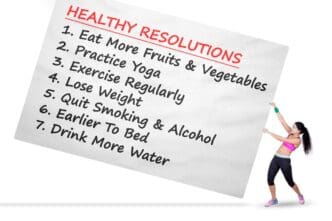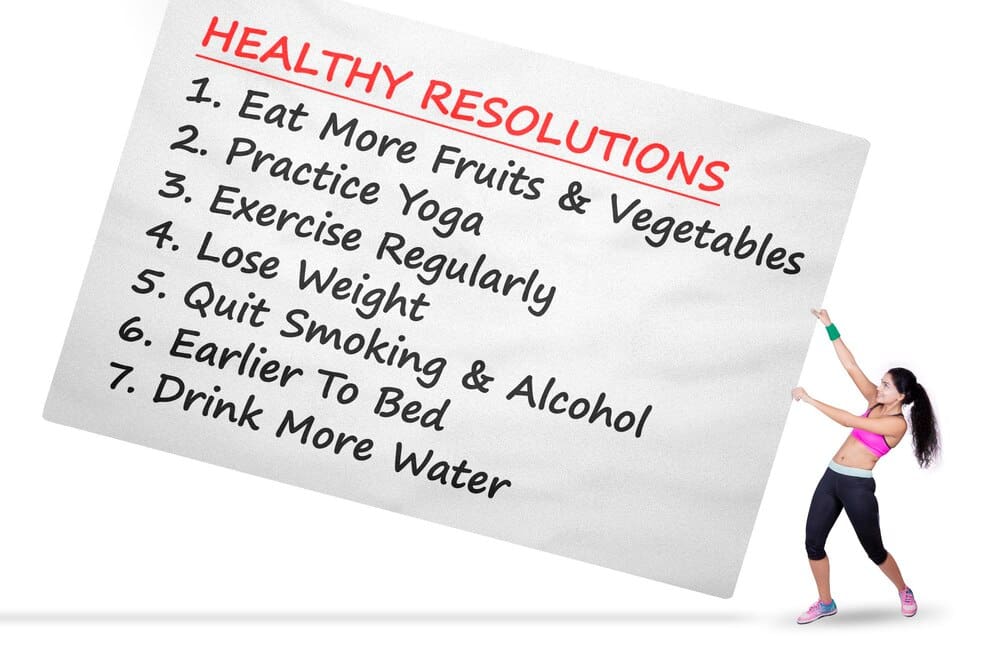For anyone feeling crushed under the weight of work deadlines, family obligations, and an endless to-do list, the idea of starting a healthy lifestyle can feel like just another impossible task. The solution, however, isn’t a radical diet or a grueling new workout plan. The most effective and sustainable path to wellness when you’re overwhelmed is to begin with micro-habits—actions so small they feel almost effortless. By focusing on one tiny, positive change at a time, such as drinking one extra glass of water or taking a five-minute walk, you can build momentum, reduce stress, and gradually weave health into your daily life without adding to your burden, proving that progress, not perfection, is the true key to long-term well-being.
Why Grand Plans Often Fail
We’ve all been there. Motivated by a new year, a looming event, or simply a moment of frustration, we declare our intention to “get healthy.” This declaration is often followed by creating an ambitious, all-encompassing plan.
This plan might involve vowing to hit the gym five days a week, cutting out all sugar and processed foods, meditating for 30 minutes daily, and getting eight hours of sleep every single night, starting Monday. While admirable, this “all-or-nothing” approach is often a recipe for failure, especially when you’re already stretched thin.
The sheer scale of such a transformation is intimidating and requires immense willpower and mental energy. When you’re already experiencing decision fatigue from a demanding life, adding a dozen new, difficult choices to your day quickly leads to burnout. One missed workout or one “forbidden” food can trigger a sense of failure, causing you to abandon the entire plan altogether.
Embrace the Power of “Just One Thing”
The antidote to this cycle of ambition and burnout is the concept of the micro-habit. A micro-habit is a tiny version of a new habit you want to form. It’s an action so small that it’s almost impossible to say no to, regardless of how tired or unmotivated you feel.
Instead of committing to a 30-minute run, you commit to putting on your running shoes and stepping outside for one minute. Instead of overhauling your entire diet, you commit to adding one piece of fruit to your breakfast. These actions are not intimidating; they are simple, achievable, and take minimal effort.
The science behind this approach is rooted in psychology. Each time you successfully complete a micro-habit, your brain gets a small hit of dopamine, the “feel-good” neurotransmitter. This creates a positive feedback loop, building momentum and reinforcing your identity as someone who follows through. These small wins cultivate self-efficacy—the belief in your own ability to succeed—which is the foundation of lasting change.
Choosing Your First Micro-Habit
The goal is to choose an action that feels ridiculously easy. Ask yourself: “What is one thing I can do that would make me feel even 1% healthier, that I can complete in under two minutes?” The answer should not require significant planning or willpower.
Consider what area of your life feels most in need of a gentle boost. Is it your nutrition? Your physical activity? Your sleep? Your mental state? Pick just one area and one single, tiny action to start with.
Your Starting Playbook: One Small Step at a Time
To make this practical, let’s break down how you can apply the micro-habit philosophy to the core pillars of wellness. Remember, pick only one of these to start. You can always add more later, once the first has become automatic.
Nutrition: Focus on Addition, Not Subtraction
When you’re overwhelmed, the last thing you need is a restrictive diet that makes you feel deprived. Instead of focusing on what to eliminate, focus on what you can easily add to your existing routine. This fosters a mindset of abundance, not scarcity.
Micro-Habit Ideas:
- Add a handful of spinach to your eggs or smoothie in the morning.
- Drink one full glass of water right after you wake up, before your coffee or tea.
- Swap one of your daily sodas or sugary coffees for a glass of water or herbal tea.
- Eat one vegetable with your lunch. It could be a few baby carrots, a sliced cucumber, or a side salad.
Movement: Redefine “Exercise”
The pressure to complete a full “workout” can be a major barrier. Free yourself from this expectation by redefining exercise as simple movement. The goal is to break up long periods of sitting and gently remind your body what it feels like to move.
Micro-Habit Ideas:
- Do five squats while you wait for your coffee to brew.
- Take a single flight of stairs instead of the elevator or escalator.
- Stand up and stretch for 60 seconds every time you finish a big task at work.
- Walk to the end of your driveway and back when you get home from work.
Sleep: Prioritize Wind-Down Over Wake-Up
Forcing yourself to wake up earlier when you’re already exhausted is counterproductive. A more effective approach is to focus on the 15-30 minutes *before* you get into bed. Creating a small buffer between your busy day and sleep can dramatically improve sleep quality.
Micro-Habit Ideas:
- Plug your phone in to charge across the room 15 minutes before you plan to get into bed.
- Read one page of a physical book (not on a screen).
- Dim the lights in your bedroom as you get ready for bed.
- Listen to one calm, instrumental song.
Mental Wellness: The Two-Minute Reset
You don’t need a 30-minute meditation session to manage stress. Micro-doses of mindfulness can be incredibly effective at interrupting the stress cycle and bringing you back to the present moment, especially during a chaotic day.
Micro-Habit Ideas:
- When you sit down at your desk, take three slow, deep breaths before opening your email.
- At a red light, consciously relax your jaw, drop your shoulders, and unclench your hands.
- Step outside for 60 seconds and just feel the air on your face, without looking at your phone.
- When you feel overwhelmed, name three things you can see and two things you can hear to ground yourself.
From One Habit to a Sustainable Lifestyle
Once your first micro-habit feels automatic—something you do without thinking, like brushing your teeth—you can begin to build upon it. This is where the real, transformative magic happens.
The Art of Habit Stacking
A powerful technique for adding a new habit is to “stack” it onto an existing one. The formula is simple: “After [Current Habit], I will [New Habit].” This uses the momentum of an established routine to carry you into the new behavior.
For example, if your first micro-habit was drinking a glass of water when you wake up, you could stack another habit onto it. “After I drink my glass of water, I will do two minutes of stretching.” The first habit becomes the trigger for the second.
Navigating Setbacks with Self-Compassion
You will have days where you miss your habit. This is not a failure; it is a normal part of the process. The crucial difference between someone who succeeds and someone who quits is how they respond to these setbacks.
Avoid the “all-or-nothing” trap. If you miss a day, don’t let it become two. Simply get back on track the next day without judgment or guilt. Treat it as data: perhaps you were extra tired or your schedule was unusually hectic. The goal is consistency over the long term, not uninterrupted perfection.
Tracking Progress Without Obsession
While tracking can be motivating, it can also become another source of pressure. Keep it simple. A checkmark on a calendar is enough. More importantly, shift your focus from output metrics (like pounds lost or miles run) to input metrics (like “Did I do my habit today?”) and how you feel.
Notice the small shifts. Do you have slightly more energy in the afternoon? Do you feel a little less reactive to stress? These internal changes are the true indicators of progress and will provide the intrinsic motivation to continue.
Your Journey Starts with a Single Step
Building a healthy lifestyle when you feel like you’re barely treading water is not about adding more pressure. It’s about strategically removing it by making positive choices so small and simple they are impossible to resist. It’s about being kind to yourself and recognizing that small, consistent efforts compound into remarkable transformations over time. Your journey to wellness doesn’t begin with a giant leap; it begins with a single, manageable step, taken today.







